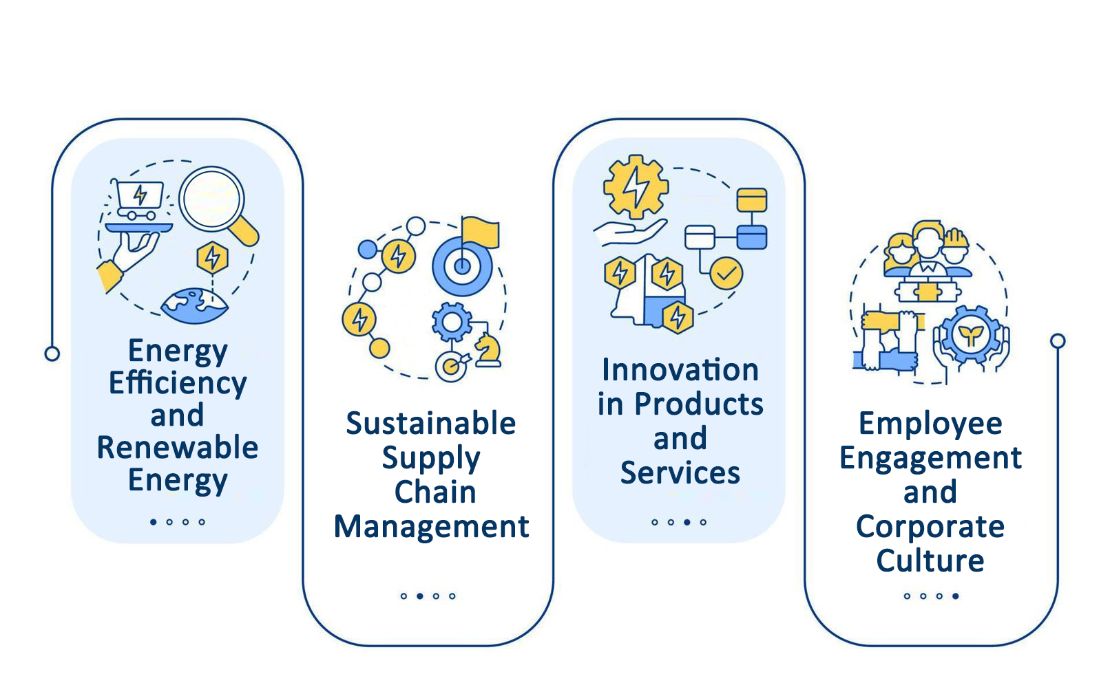
INSIGHT OCT 17, 2024
Corporate Carbon Management: Steering Businesses Towards Sustainability
In today's rapidly changing environmental landscape, the role of corporations in the fight against climate change has become increasingly critical. Corporate carbon management represents a comprehensive approach by businesses to understand, control, and reduce their carbon footprint, marking a pivotal shift towards sustainability. This article delves into the essence of corporate carbon management, exploring its importance, practical steps for implementation, innovations driving progress, and the collective effort required to make a tangible impact on global carbon emissions.
The Imperative of Corporate Carbon Management
The scientific consensus on climate change underscores the urgent need to drastically reduce greenhouse gas (GHG) emissions worldwide. Corporations, as significant contributors to carbon emissions, have a moral and, increasingly, a regulatory obligation to act. Corporate carbon management not only addresses this obligation but also presents an opportunity for businesses to lead in the transition to a low-carbon economy, enhancing their brand, reducing costs, and future-proofing operations against environmental regulations.
Understanding the Corporate Carbon Footprint
The first step in effective carbon management is understanding a corporation's carbon footprint. This involves a comprehensive assessment of direct emissions from company operations (Scope 1), indirect emissions from the generation of purchased energy (Scope 2), and all other indirect emissions that occur in a company’s value chain (Scope 3). Accurate measurement and reporting of these emissions are foundational to setting realistic reduction targets and developing strategies to achieve them.

Carbon Footprint @tycoonevents
Setting Science-Based Targets
To ensure meaningful impact, corporate emission reduction targets should align with climate science. The Science Based Targets initiative (SBTi) provides a framework for companies to set such targets, ensuring they contribute to limiting global warming to well below 2 degrees Celsius above pre-industrial levels, in line with the Paris Agreement. Adopting science-based targets not only demonstrates environmental leadership but also enhances corporate reputation and stakeholder trust.
Practical Steps Towards Carbon Management
Achieving effective corporate carbon management involves several practical steps, each contributing to a comprehensive strategy for emission reduction.
- Energy Efficiency and Renewable Energy.
Improving energy efficiency across operations is a critical and often cost-effective step in reducing carbon emissions. This can be achieved through upgrades to lighting, HVAC systems, and industrial processes. Simultaneously, transitioning to renewable energy sources, either through direct investments in renewable energy projects or the purchase of renewable energy certificates (RECs), can significantly reduce Scope 2 emissions.
- Sustainable Supply Chain Management.
Given the substantial proportion of a corporation's carbon footprint that often resides within its supply chain, engaging suppliers in sustainability efforts is crucial. This involves working with suppliers to measure and reduce their emissions, encouraging the adoption of sustainable practices, and selecting suppliers based on their environmental performance.
- Innovation in Products and Services.
Innovation plays a key role in corporate carbon management, offering new ways to reduce emissions through the development of sustainable products and services. This might include designing products with lower carbon footprints, adopting circular economy principles to reduce waste, or offering services that support customers in reducing their own carbon emissions.
- Employee Engagement and Corporate Culture.
Fostering a culture of sustainability within the organization is essential for the success of any carbon management strategy. Engaging employees in sustainability initiatives, through education, incentives, and opportunities to contribute to emission reduction efforts, can drive significant improvements in a company's environmental performance.

Steps Towards Carbon Management @ECOBUILD
The Role of Innovation and Technology.
Advancements in technology and innovation are accelerating progress in corporate carbon management. Digital tools for tracking and analyzing emissions, carbon capture and storage (CCS) technologies, and novel materials with lower environmental footprints are among the innovations enabling corporations to reduce their carbon impact more effectively and efficiently.
The Collective Effort for Sustainability.
Achieving global sustainability targets requires a collective effort that transcends individual corporations. Collaborating with industry peers, participating in multi-stakeholder initiatives, and advocating for supportive public policies are ways in which corporations can contribute to a broader, systemic change towards a low-carbon economy.
Conclusion: A Sustainable Future with Corporate Carbon Management
Corporate carbon management is more than an environmental imperative; it is a strategic necessity for businesses aiming to thrive in a future shaped by the realities of climate change. By taking decisive action to understand, reduce, and manage their carbon emissions, corporations can not only mitigate their environmental impact but also seize opportunities for innovation, cost savings, and competitive advantage. The journey towards sustainability is complex and challenging, yet with the right strategies, tools, and collective action, it is within reach.
How ECOBUILD Can Help?
ECOBUILD specializes in guiding corporations through the intricacies of carbon management, offering expertise in carbon footprint assessment, sustainability strategy development, and the implementation of innovative solutions to reduce emissions. Our team is dedicated to helping businesses achieve their environmental goals, contributing to the global fight against climate change. Let ECOBUILD be your partner in navigating the path to corporate sustainability, harnessing the power of carbon management to create a more sustainable future for all.
